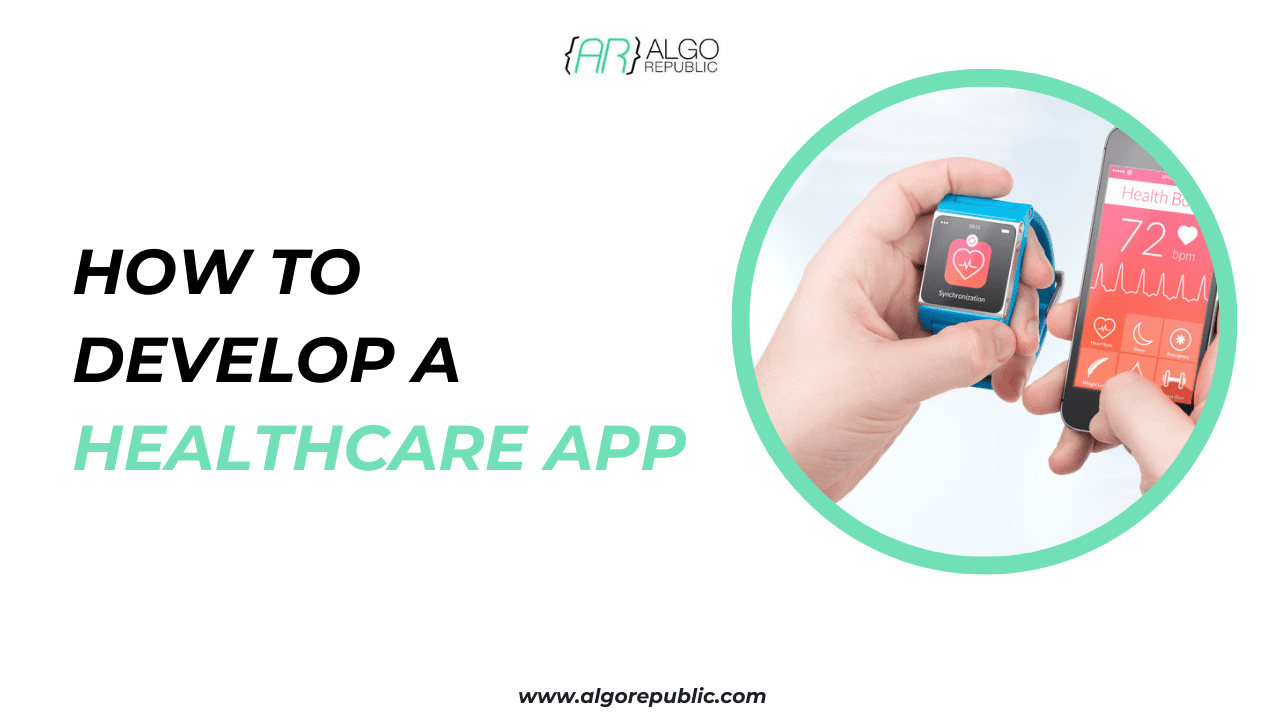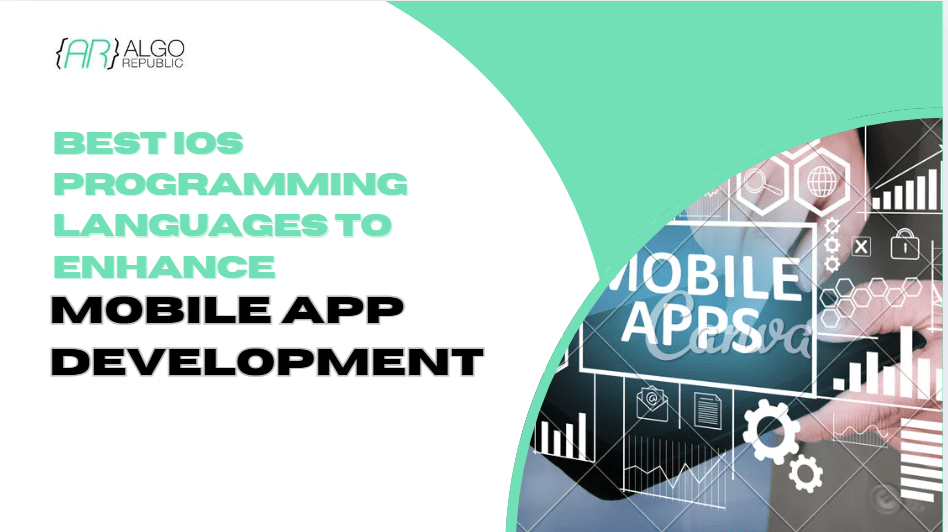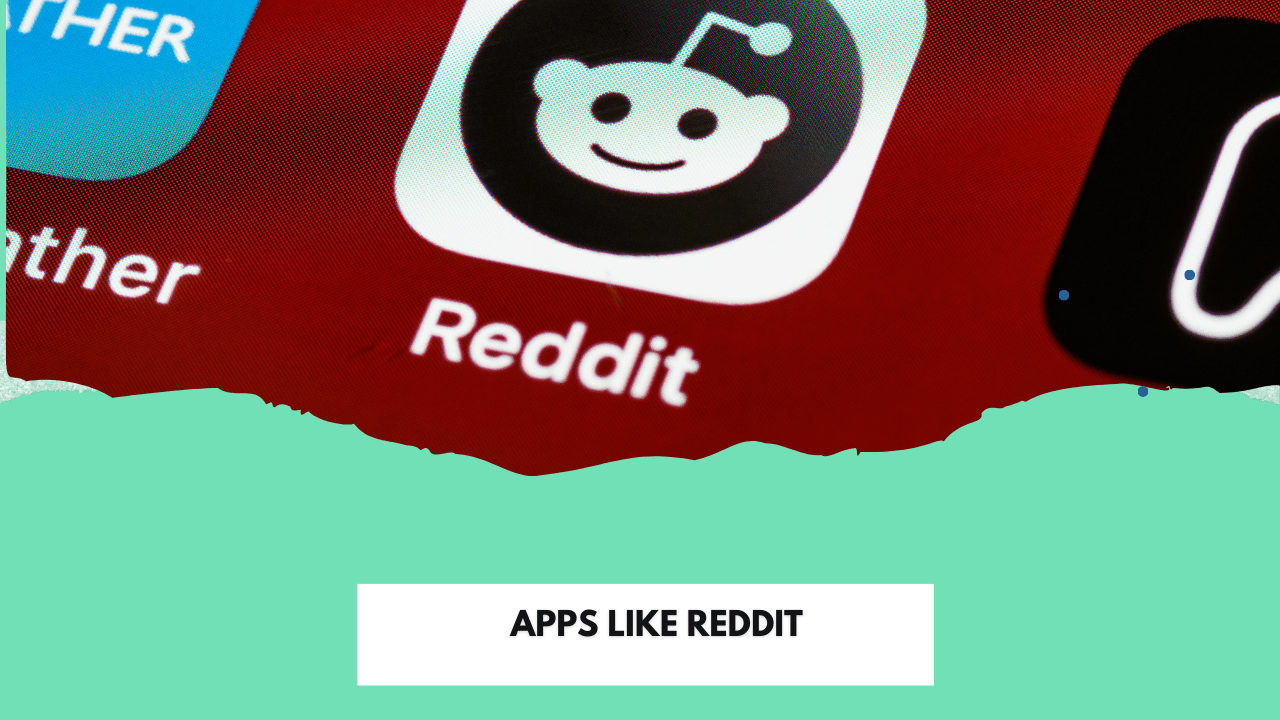Table of Contents
Develop a Healthcare App in 2024
In recent years, the landscape of healthcare has been dramatically transformed by the development of mobile applications, offering innovative solutions that enhance patient care and streamline healthcare delivery. These apps provide patients with easy access to medical information, appointment scheduling, medication reminders, and telehealth services, empowering them to take control of their health and well-being.
For healthcare providers, these applications facilitate efficient communication, real-time data access, and improved patient management. As the demand for convenient and accessible healthcare continues to grow, businesses are increasingly recognizing how to develop healthcare apps in 2024 to meet the evolving needs of patients and providers alike. By leveraging technology, healthcare apps bridge the gap between patients and healthcare systems, making healthcare more accessible, personalized, and effective.
How Can You Develop Healthcare Apps?
Healthcare app development focuses on building mobile applications that help users manage their health and medical needs effectively. These apps can offer various features such as scheduling appointments, accessing medical records, monitoring fitness and wellness, and providing telemedicine services. The goal is to improve patient engagement, streamline healthcare processes, and enhance the overall healthcare experience by making medical services more accessible and efficient through digital means.
If you are looking for a cost-effective healthcare app development company for your business, then you can consider looking for successful app development companies like AlgoRepublic. Here are the steps on how to develop healthcare apps for your business for a seamless operation.
-
Define the Purpose and Audience
Begin by clearly defining the goal of your healthcare app and determining who your target users are. Whether it’s for patient management, telemedicine, fitness tracking, or chronic disease management, understanding the specific needs and challenges of your users is essential. Conduct thorough market research to ensure your app provides unique value and addresses a real problem in the healthcare industry.
-
Comply with Regulatory Standards
Healthcare apps must comply with industry standards and regulations like HIPAA (Health Insurance Portability and Accountability Act) in the U.S. or GDPR (General Data Protection Regulation) in Europe. Ensure your app follows these regulations to protect user data privacy and security. Work with legal experts to implement necessary safeguards, such as encryption and secure data storage, to build trust with users and healthcare providers.
-
Incorporate User-Friendly Design
Design your app with a focus on user experience, ensuring it’s intuitive and easy to navigate for users of all ages. Use a clean and simple interface with clear instructions and visual cues to guide users through the app. Prioritize accessibility features like adjustable font sizes and voice commands to accommodate users with disabilities and enhance overall usability.
-
Integrate Essential Features
Identify and integrate essential features that align with your app’s purpose, such as appointment scheduling, medication reminders, secure messaging, and real-time health monitoring. Consider incorporating telemedicine capabilities for virtual consultations and enabling interoperability with existing healthcare systems for seamless data exchange. Focus on developing healthcare app features that offer clear benefits to users and enhance their overall healthcare experience.
-
Leverage Advanced Technologies
Utilize advanced technologies like artificial intelligence (AI) and machine learning to enhance the app’s functionality. AI can offer customized health suggestions, while machine learning algorithms can evaluate user data to forecast health trends and outcomes.. Additionally, consider integrating wearable device compatibility for continuous health monitoring and data collection, providing users with valuable insights into their health.
-
Test and Iterate
Conduct rigorous testing throughout the development process to identify and resolve bugs and usability issues. Perform user testing with real healthcare professionals and patients to gather feedback and refine the app’s features and design. Continuously iterate and update the app development based on user feedback and technological advancements to ensure it remains relevant and effective in the ever-evolving healthcare landscape.
-
Plan for Deployment and Support
Develop a comprehensive deployment strategy, including marketing and user acquisition plans to reach your target audience effectively. Provide ongoing support and maintenance to address user inquiries, fix bugs, and implement updates. Establish a feedback mechanism to gather user input and continually improve the app, ensuring it meets the evolving needs of the healthcare industry.
What Are the Costs Involved in Healthcare App Development?
Estimating the cost of healthcare app development in the U.S. can vary widely based on the app’s complexity, features, and the type of users it’s designed for. You can do your research on the cost estimation before hiring healthcare app developers for your company. If you are wondering how much does it cost to develop a healthcare app, then you must look into it from a different perspective including apps for patients as well as health workers. Below is an estimated cost breakdown for different types of healthcare apps:
Patient-Focused Healthcare Apps:
- Basic Wellness and Fitness Apps ($40,000 – $70,000)
These apps typically include features like exercise tracking, diet monitoring, and basic health tips. Development costs are lower as these apps don’t usually require complex integrations or strict compliance with healthcare regulations.
- Telemedicine and Appointment Scheduling Apps ($70,000 – $150,000)
These apps enable patients to book appointments, consult with doctors via video calls, and receive prescriptions. Costs increase due to the need for secure video communication, payment gateways, and user authentication features.
- Chronic Disease Management Apps ($100,000 – $200,000)
Designed for patients with chronic conditions like diabetes or hypertension, these apps offer features such as medication reminders, health data tracking, and remote monitoring. The cost reflects the need for advanced data analytics and integration with medical devices.
- Personal Health Record Apps ($100,000 – $250,000)
Apps that allow patients to store and manage their health records digitally. These require robust security measures and compliance with regulations like HIPAA, contributing to higher development costs.
Healthcare Worker-Focused Apps:
- Clinical Reference and Education Apps ($50,000 – $100,000)
These apps provide healthcare professionals with access to medical literature, guidelines, and educational content. Costs are relatively moderate, focusing on user-friendly design and a comprehensive content database.
- Electronic Health Record (EHR) Apps ($150,000 – $300,000)
EHR apps facilitate access to patient records, diagnostic tools, and treatment plans for healthcare providers. The high cost is due to complex integrations with existing hospital systems and strict compliance requirements.
- Hospital Management and Staff Coordination Apps ($200,000 – $400,000)
Designed to optimize hospital operations, these apps include features for scheduling, communication, and task management among healthcare staff. The complexity and need for real-time data synchronization contribute to higher development costs.
- Medical Device Integration Apps ($150,000 – $350,000)
Apps that connect with medical devices to provide real-time patient data to healthcare workers. Development costs are influenced by the need for specialized hardware integration and secure data transmission.
Factors That Affect The Cost of Healthcare App Development:
Healthcare app development includes multiple complex features and tools which depend upon businesses expertise in the field. Many businesses look for a fast-pacing healthcare app development at a reasonable cost. However, this totally depends on the features you choose for your app development. Here are some important factors that influence the cost of healthcare app development.
- App Complexity and Features
The more complex the app, with advanced features like real-time data tracking, telemedicine capabilities, or integration with medical devices, the higher the development cost. Complexity requires more time and resources to ensure functionality and user experience.
- Design and User Interface
A well-designed app with an intuitive and visually appealing user interface can increase development costs. Custom designs tailored to enhance user experience often require additional design expertise and iteration.
- Regulatory Compliance
Healthcare apps must comply with regulations such as HIPAA in the U.S. to ensure data privacy and security. Implementing these compliance measures requires extra time, expertise, and testing, adding to the development cost.
- Integration with Existing Systems
Apps that need to integrate with existing hospital management systems or electronic health records (EHR) involve complex data handling and secure connections. This integration increases both the technical complexity and the cost of development.
- Development Team Expertise
Hiring a development team with specialized expertise in healthcare app development and knowledge of medical regulations can impact costs. More experienced teams may charge higher rates but can ensure a higher quality product.
- Testing and Maintenance
Comprehensive testing is crucial for healthcare apps to ensure they function correctly and securely. Ongoing maintenance and updates to adapt to new regulations or technology changes also add to the total cost over time.
Healthcare App Development Features That Are Mandatory for the Industry:
Healthcare app development requires specific features depending upon the users. Many healthcare app development companies like AlgoRepublic use highly-integrated technologies to create an automated healthcare app. However, here are some important features that every healthcare app must acquire for a smooth business operation.
- User Authentication and Authorization
Secure login systems, such as multi-factor authentication, are crucial to protect sensitive health information. These features ensure that only authorized users can access the app, safeguarding patient privacy and data integrity.
- Data Encryption and Privacy Controls
Healthcare apps must encrypt data both in transit and at rest to comply with regulations like HIPAA. This ensures that patient data remains confidential and protected from unauthorized access, meeting privacy standards.
- Electronic Health Record (EHR) Integration
Integration with EHR systems allows healthcare providers and patients to access and update medical records seamlessly. This feature improves care coordination and ensures that healthcare professionals have up-to-date patient information.
- Appointment Scheduling and Reminders
Allowing users to schedule appointments and receive reminders helps improve patient engagement and reduces no-show rates. This feature simplifies the booking process for patients and streamlines operations for healthcare providers.
- Telemedicine Capabilities
Video conferencing and virtual consultation features enable remote patient-doctor interactions, increasing accessibility to healthcare services. This is especially important for reaching patients in rural or underserved areas.
- Secure Messaging and Communication
Secure messaging enables patients and healthcare providers to communicate within the app, ensuring their interactions remain private and protected. This feature facilitates timely communication and helps clarify medical instructions, enhancing patient care.
- Medication Tracking and Reminders
Features that allow patients to track their medication schedules and receive reminders help improve adherence to treatment plans. This functionality can lead to better health outcomes and reduced hospital readmissions.
- Analytics and Reporting Tools
Providing analytics and reporting tools helps healthcare providers track patient progress and identify trends. This data-driven approach supports informed decision-making and personalized care plans.
Benefits of Healthcare App Development:
Today, businesses are in need of healthcare app development to run their operations smoothly. These apps come in advanced features which vary the cost for app development. It integrates the functionality of the healthcare system for any business. Whether you are a single doctor who wants to run an online clinic or a well-reputed hospital who wants to improve their operations, healthcare app developers at AlgoRepublic are highly efficient to provide these benefits to your business.
- Enhanced Patient Engagement
Healthcare apps empower patients by providing easy access to their health information, enabling them to track their progress and manage their care proactively. Enhanced engagement may result in greater adherence to treatment plans and better overall health outcomes.
- Improved Access to Care
By facilitating telemedicine and virtual consultations, healthcare apps make it easier for patients to access medical care regardless of their location. This is particularly beneficial for patients in remote or underserved areas who might otherwise face barriers to accessing healthcare services.
- Streamlined Operations for Healthcare Providers
Apps that integrate with Electronic Health Records (EHR) and offer features like appointment scheduling can significantly reduce administrative burdens. This streamlining allows healthcare providers to focus more on patient care and less on paperwork and logistics.
- Data-Driven Decision Making
Healthcare apps equipped with analytics tools enable providers to gather valuable data on patient health trends and treatment effectiveness. This data can be used to inform clinical decisions, personalize care plans, and improve the overall quality of care.
- Cost-Effective Healthcare Solutions
By reducing the need for in-person visits and optimizing resource use, healthcare apps can lower healthcare delivery costs. Patients also benefit financially by saving on travel expenses and receiving timely care, potentially avoiding more costly emergency interventions.
- Enhanced Security and Compliance
Modern healthcare apps are designed to meet strict regulatory requirements, ensuring patient data is protected through robust security measures like encryption. This compliance fosters trust with users and reduces the risk of costly and damaging data breaches for healthcare organizations.
Healthcare App Development User Statistics in 2024:
In 2024, healthcare app usage has continued to grow significantly among both patients and healthcare workers, driven by advancements in technology and the increasing demand for digital health solutions. There are over 350,000 healthcare apps available, reflecting a substantial increase in the market. These apps range from general health and wellness to specialized medical tools, catering to a wide variety of needs.
Additionally, patients are increasingly relying on healthcare apps for managing chronic conditions, scheduling appointments, and accessing telemedicine services. The adoption of telehealth and remote monitoring apps saw a significant boost during the COVID-19 pandemic and has remained strong, with many patients appreciating the convenience and accessibility they provide.
Also, healthcare professionals are using apps for better patient management, accessing clinical decision support tools, and integrating lab results. The integration of telemedicine and EHR systems in these apps helps improve patient care and streamline workflow.
Conclusion:
The healthcare app development represents a pivotal shift in how healthcare app services are delivered and consumed. By providing patients and healthcare professionals with powerful tools for communication, monitoring, and management, these apps enhance the quality of care and improve health outcomes. Businesses that invest in healthcare app development are not only meeting the current demands of the healthcare industry but are also positioning themselves as leaders in digital health innovation.
As technology continues to advance, the potential for healthcare apps to revolutionize the healthcare experience will only grow, making them an essential component of modern healthcare strategies. By embracing this trend, businesses can play a crucial role in shaping the future of healthcare, ensuring that it becomes more efficient, patient-centered, and accessible to all.
If you are looking for the best healthcare app development company in the US, then you must visit AlgoRepublic. We provide tailored solutions to work on complex features and tools for healthcare app development. Moreover, our healthcare app developers are proficient enough to create innovative apps using modern technologies for your business.
FAQs:
Healthcare apps should include features such as secure user authentication, appointment scheduling, telemedicine capabilities, electronic health records (EHR) integration, medication reminders, and patient data analytics. These features enhance patient engagement and streamline healthcare processes.
The development timeline for a healthcare app can vary significantly depending on the app's complexity, the number of features, and the development team's expertise. Generally, a basic app can take 3-6 months to develop, while more complex apps with advanced features might take 9-12 months or longer.
Healthcare apps must adhere to various compliance standards such as HIPAA (Health Insurance Portability and Accountability Act) in the U.S. These regulations ensure that patient data is handled securely and confidentially. Compliance with these standards is crucial to protect patient information and avoid legal issues.
The cost of developing a healthcare app depends on factors such as app complexity, platform (iOS, Android, or both), design, features, and the development team's location. A basic app might cost between $50,000 to $100,000, while a more complex app with advanced features could range from $150,000 to $300,000 or more.
When selecting a development team, consider their experience in healthcare app development, technical expertise, understanding of healthcare regulations, and previous client reviews. It is essential to work with a team that can deliver a high-quality app while ensuring compliance with industry standards.
Developing healthcare apps presents challenges such as ensuring data security, meeting regulatory compliance, integrating with existing healthcare systems, and providing a user-friendly interface. Overcoming these challenges requires a well-planned development process and collaboration with healthcare professionals.



